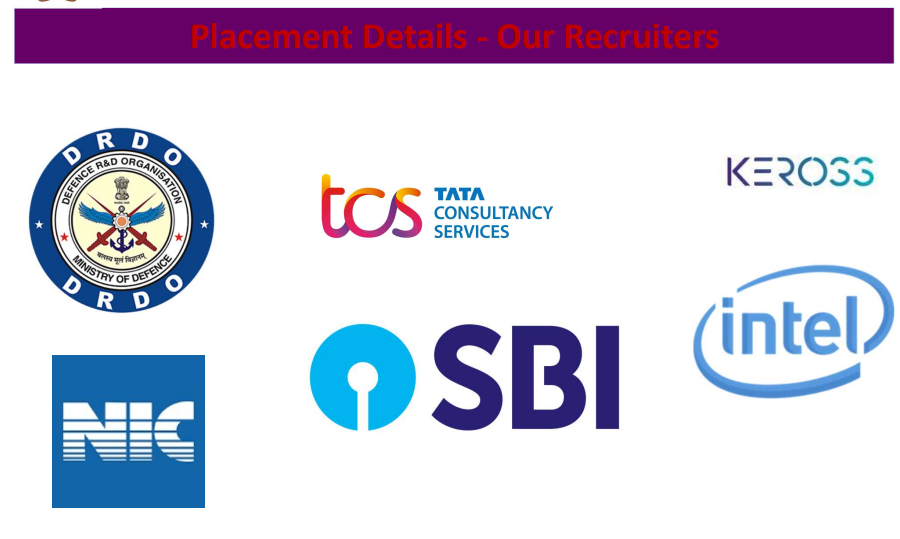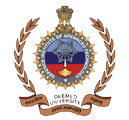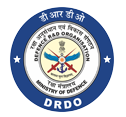Home /Schools/SoCEMS
-
About
- Academics
- Director's Profile
- Faculties
- Staff
- Student
- Facilities
- Sponsored Project
- Publication
- Placements
School of Computer Engineering and Mathematical Sciences
In the vibrant landscape of technological digital advancement, the School of Computer Engineering and Mathematical Sciences (SoCE&MS) emerged in 2022 as a beacon of innovation and progress. Born with the fusion of the Department of Computer Science and Engineering (CSE), the Department of Applied Mathematics (AM) and Data Centre, the mission is to pioneer breakthroughs in the realm of Computing and Mathematical Sciences. The CSE, our trailblazing department was founded in 1987, with first MTech course offered in 2009; while AM has been integral part of our institute’s history since its inception. We stand on the shoulders of this rich legacy as to strengthen and apply modern-digitization, as a step into a future defined by innovation, critical thinking and scientific excellence.
Research in SoCE&MS isn’t just a buzzword; it is our heartbeat. We are on the forefronts of cutting-edge research, impart trainings, actively managing funded projects and ahead in revenue generations. The school has received accolades for recognitions via patents & publications; in various national level hackathons; national & international conferences & seminars, Sports & Cultural events. The SoCE&MS is the driving force behind the Data Centre activities, facilitating internet access, email service, and web hosting for DIAT.
The SoCE&MS’s dedication extends beyond the walls of DIAT. We are championing ATMANIRBHAR BHARAT INDIA@75 with PAN-INDIA Certification Courses in Artificial Intelligence & Cyber Security. The customized programs for Tri-Services and other national organizations underscore our commitment to empowerment and growth to build self-reliant nation. With resounding emphasis on research, interdisciplinary collaborations, and a global outlook, SoCE&MS stands tall as the vanguard of education, charting the course for a brighter future, to build self-reliant and sustainable nation. The aspiring candidates are welcome to the SoCE&MS where innovation knows no bounds!
PhD Open for SoCE&MS
Ph.D. ProgramThe SoCE&MS offers Ph.D. program in various research fields and will be advertised time-to-time in the website. We admit students by national fellowships like CSIR, UGC-JRF or other equivalent national level exams and also through various means like institutional fellowship for GATE and NET qualified students. We also cater MoD sponsored candidates. Ph.D. students who joined department will undergo course work for first six months and followed by a comprehensive exam at end of their first year. Clearing this confirms their registration for Ph.D. program and they continue to carry the research work in the respective field. After a satisfactory periodical review, he/she will propose his/her work for thesis submission will be evaluated by a panel of examiners. Finally, after successful completion of an open defense he/she will be awarded a Ph.D. degree.
PG Program
The SoCE&MS offers Masters of Technology (M. Tech). The M. Tech program is of four-semester duration. In each of the first two semesters there are four courses and practical. There will be three continuous evaluation examinations and a final semester examination for every course. Half-yearly evaluation of the project takes place at the end of the third semester. At the end of the final semester the student submits a thesis and makes a presentation about the project, which is evaluated by the Internal and External examiners. Course syllabus has been updated periodically to keep pace with the contemporary technological advancement.
M. Tech in Cyber Security: Communication network and information systems have become an essential factor in economic, social development and almost in every facet of our daily lives. Information systems are vulnerable to one or more types of cyber-attacks. The security of communication networks and information systems and their availability in particular, is therefore of increasing concern. In general, cyber security threats are increasing rapidly, the incidents range from defaced websites to theft of large volumes of intellectual property and money, to even Internet crimes. Cyber security is now a prominent field of study. Professionals who are trained in this field are regarded highly and contribute to strengthening the social, political and financial fabric of the modern society. The domain of cyber security refers to the collection of tools, policies, security concepts, guidelines, risk management approaches, actions, training, best practices, assurance and technologies that can be used to protect the cyber environment, organization and user’s assets. To survive in an Information Centric Warfare scenario, the tools and techniques of cyber security will provide mechanisms to safeguard the critical systems against related threats & attacks. Eligibility: Full-time B.E./B.Tech. in Computer science/Electronics/Electrical/Electronics and Communications/Telecommunications/Information Technology/or equivalent discipline or Full-time M.Sc. in Computer Science/Maths or equivalent discipline with valid GATE score in CS/ECE.
M. Tech. in CSE (Artificial Intelligence): Artificial Intelligence (AI) based systems have become an essential factor in economic, social development and almost in every facet of our daily lives. AI, deep learning and machine learning are becoming thrust areas and prominent field of study. Professionals who are trained in this field are highly regarded and contribute to strengthening the social, political and financial fabric of modern society. Pre-requisites/Eligibility:Scholarship Students Category: Minimum CPI of 6.5 or 60% of marks or first class in qualifying degree. Bachelor degree in Engineering/Technology or Equivalent in CS/IT/ECE/ETC/EE or in relevantDisciplines and a valid GATE Score.
Sponsored Students Category: Minimum CPI of 6.5 or 60% of marks or first class in qualifying degree.
Bachelor degree in Engineering/Technology or Equivalent in any Discipline.M.Tech. in Modelling & Simulation: This program aims to provide training of in-depth knowledge of various modelling and simulation techniques and mathematical topics to multiple courses conducted at DIAT. Since then, the Department members have been actively involved in the research in different fields of applied mathematics such as Numerical Methods and Optimization, Image Processing, ballistics, flight dynamics, hydrodynamics, hydro-ballistics. The Department has recently developed advanced Modelling and Simulation techniques like Neural networks, Fuzzy Logic, and Genetic Algorithm. The Department also has expertise in the field of Statistics, Probability, and Cryptography. The M. Tech (Modelling & Simulation) program students will undergo basic training in the subjects related to mathematical modelling & simulation through classroom teaching in the first and second year. During this period, the student is also exposed to various simulation tools and practical experiments. The course curriculum will be updated periodically to keep pace with contemporary technological advancement. The Department is also actively engaged in handling various agencies like DRDO / ISRO / IITM / IIT / 3DPLM – Dassault Systems / Bharat Forge / BEL / L&T etc. The Department is actively supporting the Institute’s overall academic growth and development in academics and administration. The Department has projects in the field of Modelling & Simulation. After completing their program, students are placing in various R&D organizations / Software field and registering for Ph.D. in highly reputed organizations like IITs.
Eligibility : The candidate must have a Valid GATE Score and marks / CPI (Cumulative Performance(Index), referred to in subsequent section, implies a minimum of 55% marks/SPI of 5.5 (on 10-point scale) as long as it is at least seven percent higher than the minimum pass marks/CPI from a recognized Institute / University in B. Tech / BE degree MSc / MS degree in CS / IT / Mathematics / Statistics / Physics / Electronics Provided,Mathematics is one of the subject at the graduate level and Knowledge in computer programming is desirable. Valid GATE Score in CSE / IT / ECE / ME / AE / CE / EE / IN / MA / STM.Tech. in Data Science: This program was started in the academic year 2020-21. Data Science is the combination of statistics, mathematics, programming, problem-solving, capturing data in ingenious ways, the ability to look at things differently, and the activity of cleansing, preparing, and aligning the data. This program aims to train the student undergoes basic training in the subjects (Core and Elective) related to probability and statistics, inference, regression, optimization, statistical simulation and data analysis, sampling theory (Math and Statistics); management decision analysis, decision models, game theory (IME, Economics), programming, algorithms, operating systems, databases, signal processing, machine learning, and data mining techniques of data science (C.S., E.E.). Information Theory (information, entropy, conditional information, coding), Multi-resolution (multirate) signal processing (wavelets, pyramids), ANN, SVM, Image Processing and Video Analytics, Projection pursuit Artificial Intelligence and DSS through classroom teaching in the first and second year. During this period, the student is also exposed to various simulation tools and practical. In addition to this, a course entitled “Data Science with Industrial Perspectives” is mandatory to audit the course. This course aims to attend the specialist’s talk(s) on various disciplines handling Big data. In this, the students will have exposure to interact with experts and further exposure to give presentations to choose the topic as per their choice relevant to Data Science. Course curriculum will be updated periodically to keep pace with contemporary technological advancement. Eligibility : The candidate must have a Valid GATE Score and marks / CPI (Cumulative Performance Index), referred to in subsequent section, implies a minimum of 55% marks/SPI of 5.5 (on a10-point scale) as long as it is at least seven percent higher than the minimum pass marks/CPI from a recognized Institute / University in B. Tech / BE degree or MSc / MS degree in CS / IT / Mathematics/ Statistics / Physics / Electronics provided a)Mathematics is one of the subject at the graduate level and b)Knowledge in computer programming is desirable c)Valid GATE Score in CSE / IT / ECE / ME / AE / CE / EE / IN / MA / ST
M.Sc. in Information Technology : The ITMC syllabus encompasses topics ranging from Basic Programming in C/C++, SoftwareDevelopment, Database management, SQL, ASP.Net, Advance Networking, SAP modules, Linux,various Cyber Security Policies and orientation to applications used in the Indian Navy. The course curriculum has been formulated and structured based on learning outcome for the Officers trained forcarrying out IT duties in various ships and shore establishments of the Indian Navy. Eligibility: Officers nominated by IHQ MoD (N). (Minimum educationalqualification – Graduate).
M.Sc. in Data Science :The Master of Science in Data Science (M.Sc.-DS) program at DIAT is designed to address the current market needs for highly skilled data science and data analytics professionals. The program is designed to help graduates gain skills and experience in designing,implementing, and transforming data sets into actionable knowledge. It provides students with the skills and knowledge needed to develop competencies in managing data science and analytics projects and working with data analytics tools and technologies. The program is aimed at helping to educate a new generation of information professionals capable of taking the leadership role by connecting the dots and using data to support strategic initiatives within the organization. The Master of Science (M.Sc.) programme in Data Science is designed to meet such demands and train the next generation of data scientists. This is a two-year postgraduate interdisciplinary course spread over four semesters. Through this course, students will have the opportunity to gain hands-on experience with a variety of analytical tools available for the purpose of structuring large data sets to unearth hidden information and allow the organizations to build and sustain a long-term competitive advantage. The capstone of the programme is a dissertation during second year in which students apply the acquired theoretical knowledge in data science to solve real-world business problems. Minimum Educational Qualifications : The candidate must have a qualified Bachelor‘s degree in any branch or discipline.
Essential subjects in Bachelor’s Degree along with minimum duration: Mathematics/Statistics as a subject for at least two years/four semesters. Qualified JAM Exam Paper in Mathematical Statistics (MS) or Mathematics (MA).
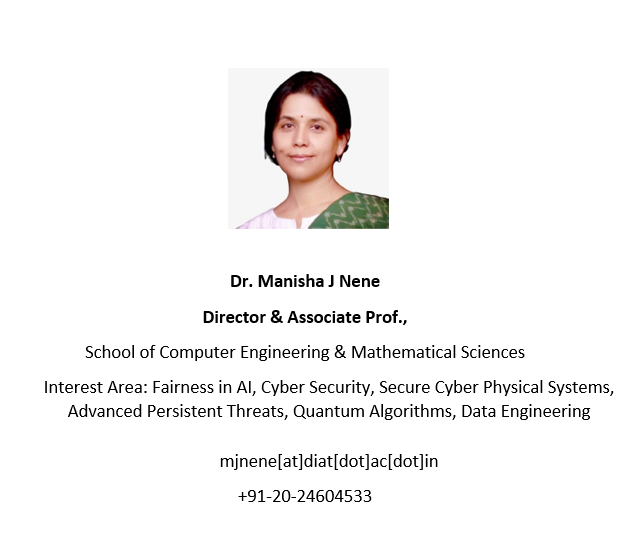



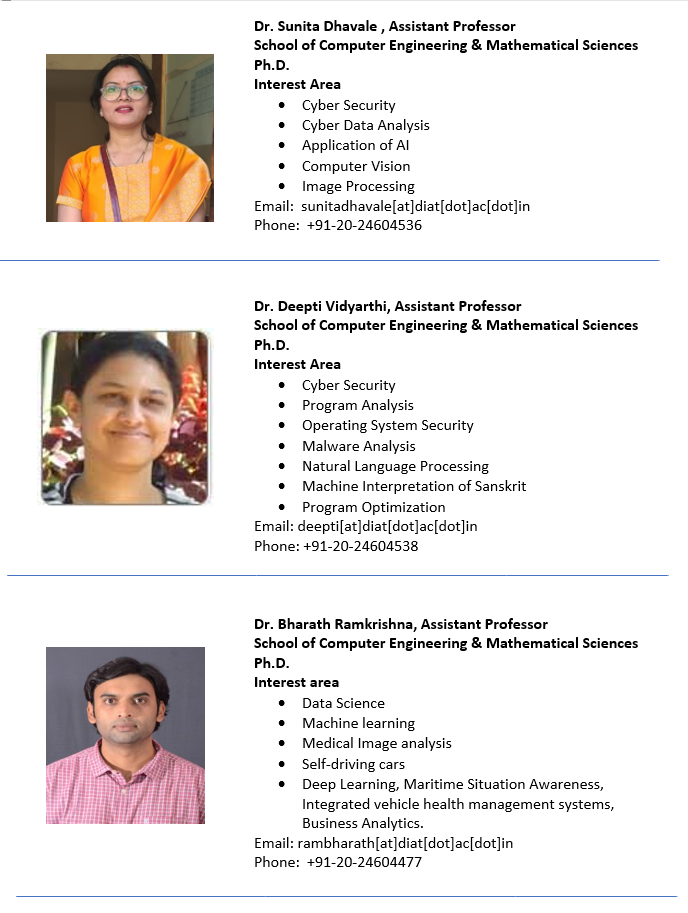

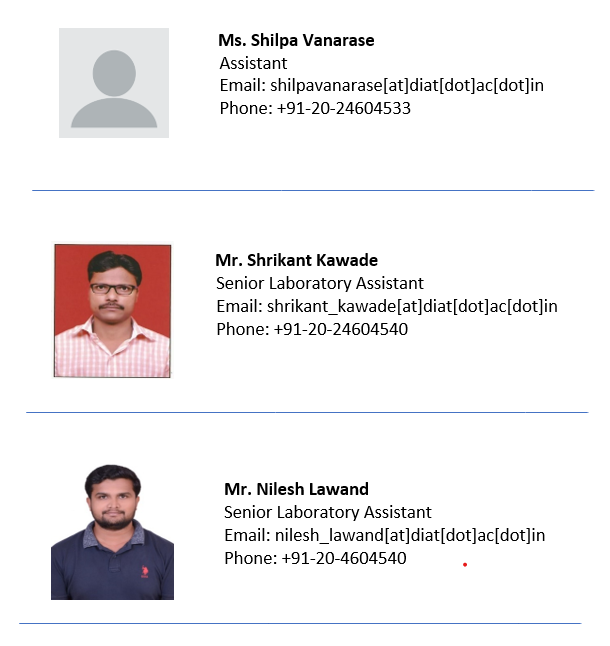
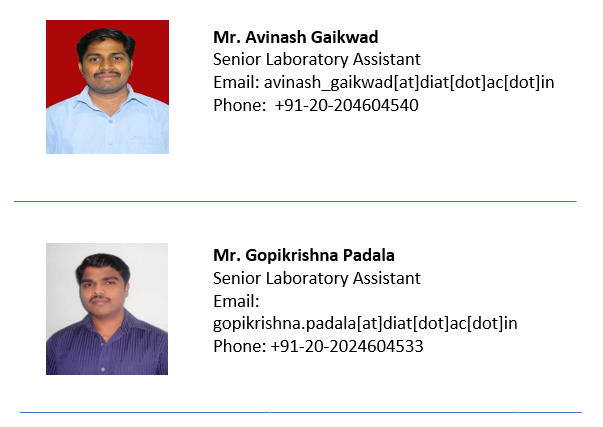
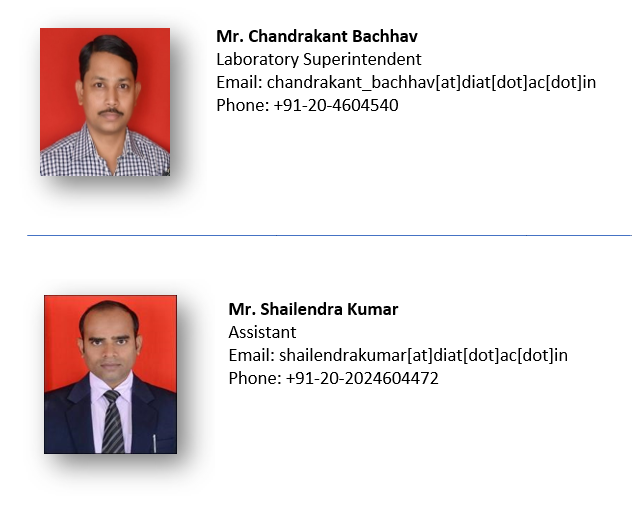

Artificial Intelligence, Deep Learning & Digital Forensics Laboratory
Cyber Security Laboratory
Malware Analysis Laboratory
Research Laboratory
Sensor Networks, IoT, Data Analytics Laboratory
Secure Systems Laboratory
Artificial Intelligence for Cyber Data Analytics Laboratory
Cyber Physical Systems Laboratory
Modelling & Simulation Laboratory
Multiphysics & Entropy Generation in Complex Porous Cavities with Nanofluids under Magnetic Effect: Modelling & Simulation (funded by SPARC – Min. of Education, Govt.of India,2023)
Intelligent Video Based Human Activity Analysis (DRISHTI) (funded by LSRB DRDO)
Prognostic Engine Health Assessment based on Borescope Images using AI Approach (funded by ADA, Bangalore)
Journals
Brevis factor ρ to evaluate data aggregation tree scheduling heuristics in sensor networks, Wiley International Journal of Communication Systems,Vol.35(3),Jan 2022.
A framework for prototyping Distributed Cyber-Physical systems with reference nets, Elsevier Simulation Modelling Practice and Theory, vol.117,May 2022.
Quntum Web Trust,Wiley Security and Privacy, Vol.5 (1), March 2022.
Qubits based mutual authentication protocol,Wiley Security and Privacy,Vol.5 (3),May 2022.
Construction and Analysis of Petri Net Model for Distributed Cyber-Physical Systems,Defence Science Journal, DRDO ,Vol. 72 (5),Sept 2022.
Two-stage Deep Learning Architecture for Chest X-ray based COVID-19 Prediction,International Journal CRC Press, Advances in Deep Learning for Medical Image Analysis, 2022.
Deep Learning Techniques for Banner Image Classification,IETE Journal of Research, Jan 2022.
Corona-Nidaan: Lightweight Deep Convolutional Neural Network for Chest X-Ray based COVID-19 Infection Detection,2021.
Application of DNN for radar micro-doppler signature-based human suspicious activity recognition,Pattern Recognition Letters, Elsevier, Volume 162, 2022, Pages 1-6.
DIAT-μRadHAR (micro-Doppler Signature Dataset) & μRadNet (A lightweight DCNN) – for Human Suspicious Activity Recognition,IEEE Sensors Journal, 6851 – 6858, 2022.
Lwr-based quantum-safe pseudo-random number generator. Journal of Information Security and Applications 73, 2023.
LWE Based Quantum-Resistant Pseudo-Random Number Generator, The International Arab Journal of Information Technology, Vol. 20, No. 6, November 2023.
A Framework For Secure Web Browsing, Using Trusted Platform Module (TPM), Journal of Information System Security 17.3 (2021).
Hardening web browser security configuration using machine learning technique, International Journal of Electronic Business 15.3 (2020).
Optimized Algorithm for Target Tracking using Classification Information based Association Filter, International Journal of Innovative Technology and Exploring Engineering (IJITEE) ISSN: 2278-3075 (Online), Volume-8 Issue-12, October 2019.
CNN based framework for representative detection of liver images for CAD and tele-sonography applications, CSITransactions on ICT (2019): 1-5.
Multi-modal Framework forAutomatic Detection of Diagnostically Important Regions in Nonalcoholic Fatty LiverUltrasonic Images, 3, vol.38.3, pp-586- 601, 2018.
Automated Quantification of Ultrasonic Fatty Liver Texture based on Curvelet Transform and SVD, Elsevier Biocybernetics andBiomedical Engineering, vol.38.1, pp-145-157, 2018.
Computer Aided Abnormality Detection for Kidney on FPGAbased IoT Enabled Portable Ultrasound Imaging System, Elsevier Innovation in Researchand Biomedical Engineering, 37(4), pp-189-197, 2016.
FPGA based Portable Ultrasound Scanning System with Automatic kidney detection, Journal of Imaging, 1(1), pp-193-219.
